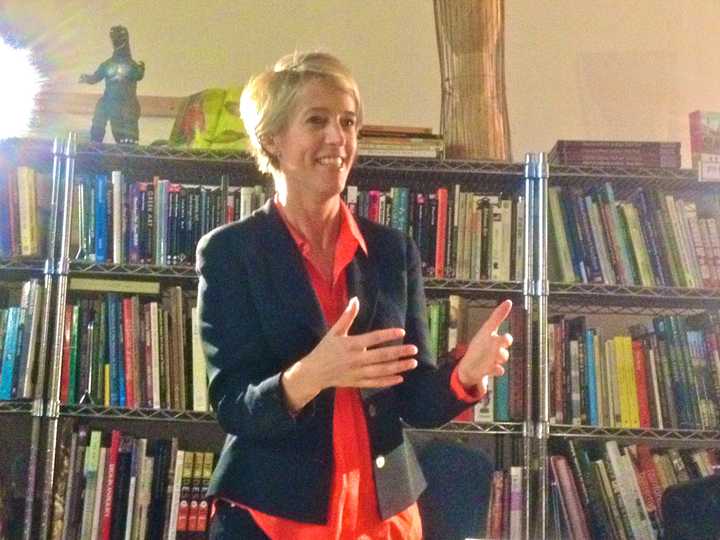Teachout, who lost the Democratic gubernatorial bid to Gov. Andrew Cuomo in September, says that privately financed election campaigns allow members of state and federal government to receive campaign funding to secure their seats in exchange for kickbacks, like tax subsidies and legal loopholes.
“Half of congress goes on to take lobbying jobs,” said Teachout at Curious-on-Hudson in Dobbs Ferry on Thursday, Oct. 16, during a stop on her book tour for "Corruption in America: From Benjamin Franklin's Snuff Box to Citizens United.”
“Several members of the legislature in Albany have lucrative side jobs, serving their clients rather than people in their district. Part of the reason you see grotesque profits and tax loopholes that aren’t necessary is because you have Cuomo pushing for subsidies for corporations, which leads to unnecessary profits that gets pushed back into the political system.”
The political organizer and activist, who is a constitutional and property law professor at Fordham University and was cited by Supreme Court Justice John Paul Stevens in Citizens United v. the Federal Trade Commission, says privately funded elections are unfair to candidates with less funding. With less financing, candidates have less access to the media, and a lower ability reach and be noticed by constituents.
“A lot more women run for office and a lot more people of color run for office when you have public financing,” said Teachout. “You have the ability to get out of your day job and get enough support. More teachers are running that are not connected to the old boys network, but they have 400 friends. And with 400 friends you can do something.”
Though public financing would raise taxes, Teachout says that cost is far outweighed by the costs to taxpayers in providing kickback tax subsidies.
She says its up to constituents to push for a system that serves them by voting for non-Republican state lawmakers this November who support election finance reform and advocate for a publicly financed election system.
“My hope is that lawmakers will act quickly to pass a public funding system and anti-monopoly laws to protect civic culture,” said Teachout.
She also encouraged the two dozen or so in attendance to work in groups to lobby their representatives in government
“To Andrew Cuomo, frackers are the most powerful political group not because of polling, but because they are everywhere he goes,” said Teachout. “Politicians are animals just like the rest of us, they respond to the constant pressure and force of people who want something. State senators are more susceptible. They’re not used to being noticed.”
Click here to follow Daily Voice Rivertowns and receive free news updates.

